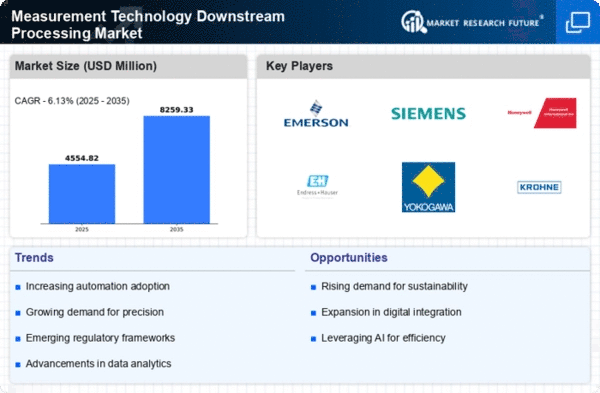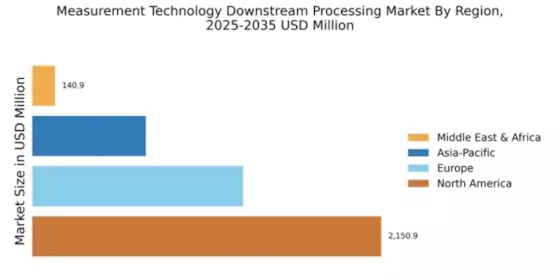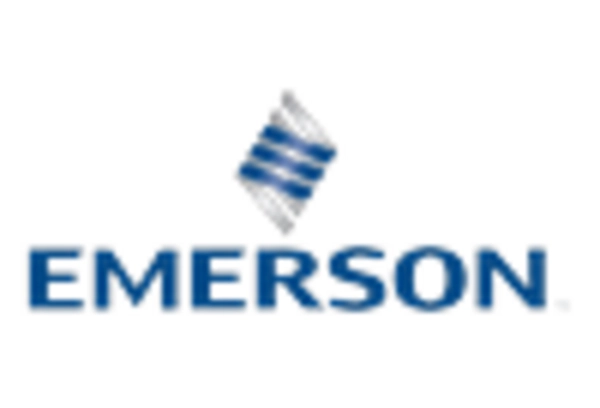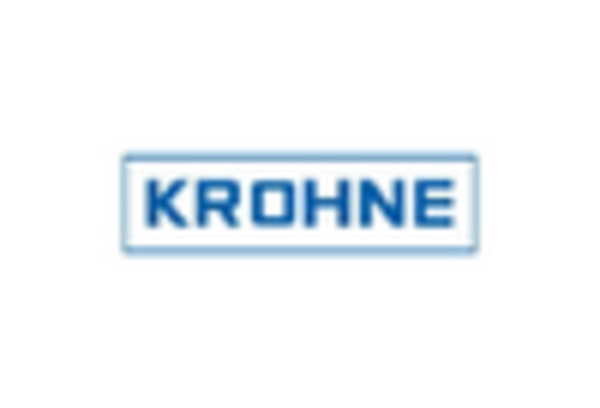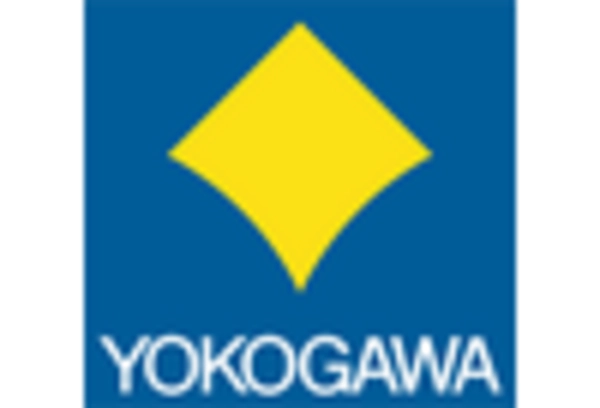Technological Advancements
Technological advancements play a pivotal role in shaping the Global Measurement Technology in Downstream Processing Market Industry. Innovations such as real-time monitoring systems and advanced sensors enhance the precision and reliability of measurement processes. These technologies facilitate better data collection and analysis, allowing companies to make informed decisions. As industries increasingly adopt these cutting-edge solutions, the market is poised for growth. The anticipated compound annual growth rate (CAGR) of 6.13% from 2025 to 2035 underscores the potential impact of these advancements on the industry's trajectory.
Rising Demand for Automation
The Global Measurement Technology in Downstream Processing Market Industry experiences an increasing demand for automation across various sectors. Automation enhances efficiency and accuracy in downstream processing, leading to reduced operational costs. For instance, industries are adopting automated measurement technologies to streamline processes such as filtration and purification. This trend is expected to contribute to the market's growth, with projections indicating a market value of 4.29 USD Billion in 2024. As companies seek to optimize their operations, the integration of automated measurement solutions is likely to become a standard practice, thereby driving the industry's expansion.
Growing Focus on Sustainability
The Global Measurement Technology in Downstream Processing Market Industry is witnessing a growing emphasis on sustainability and environmental responsibility. Companies are increasingly adopting measurement technologies that minimize waste and energy consumption, aligning with global sustainability goals. This shift is driven by consumer demand for eco-friendly practices and regulatory pressures to reduce environmental impact. As organizations implement sustainable practices, the demand for measurement technologies that support these initiatives is likely to rise. This trend may further contribute to the market's growth, reflecting a broader commitment to sustainability in industrial processes.
Expansion of Biopharmaceutical Sector
The expansion of the biopharmaceutical sector significantly influences the Global Measurement Technology in Downstream Processing Market Industry. As biopharmaceutical companies scale up production, the need for precise measurement technologies becomes paramount to ensure product quality and compliance with regulatory standards. The increasing complexity of biopharmaceutical processes necessitates advanced measurement solutions to monitor critical parameters effectively. This trend is expected to drive market growth, as the biopharmaceutical sector continues to evolve and expand, creating opportunities for measurement technology providers.
Regulatory Compliance and Quality Assurance
In the Global Measurement Technology in Downstream Processing Market Industry, stringent regulatory requirements necessitate precise measurement and monitoring of processes. Compliance with regulations ensures product quality and safety, particularly in sectors such as pharmaceuticals and food processing. Companies are increasingly investing in advanced measurement technologies to meet these standards, which is likely to propel market growth. The emphasis on quality assurance is expected to be a key driver, as organizations strive to avoid costly recalls and enhance consumer trust. This focus on compliance may contribute to a projected market size of 8.26 USD Billion by 2035.


